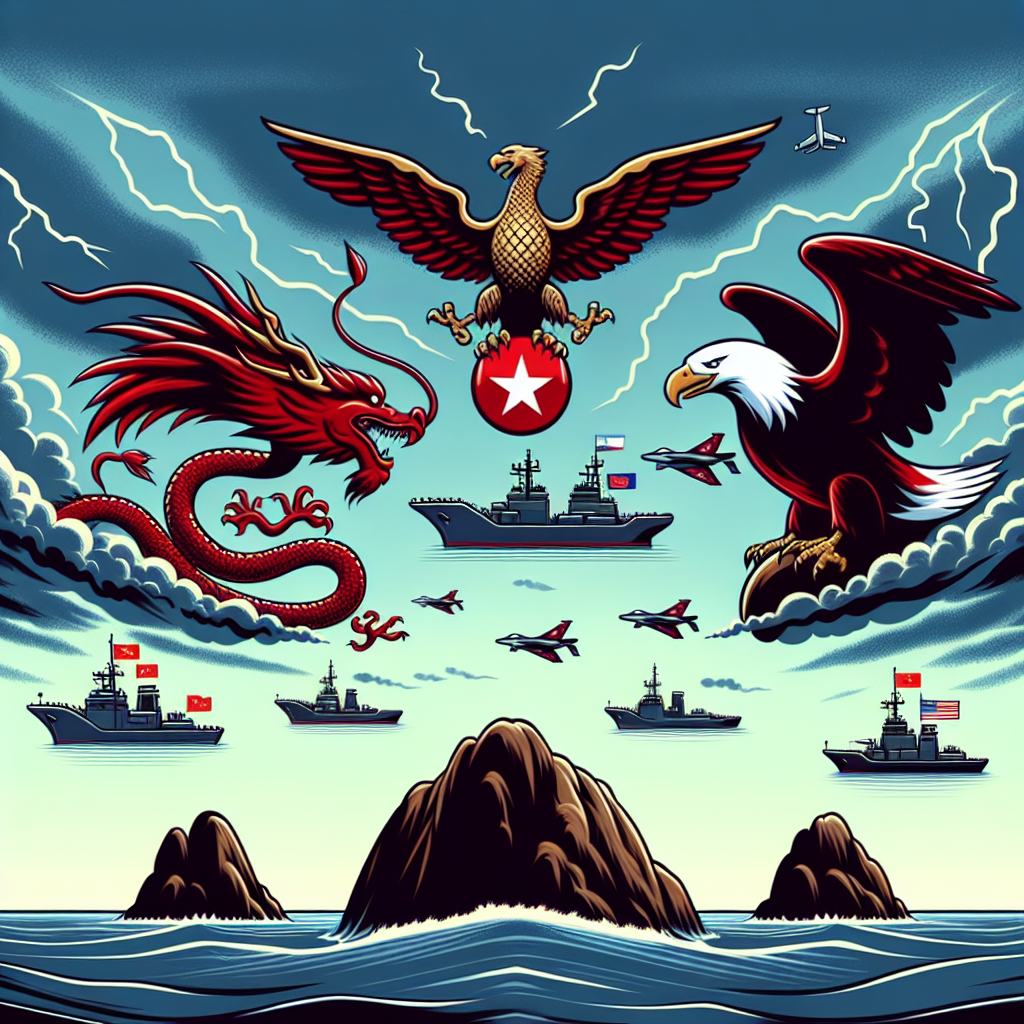Listen up, world—because the dragon’s breathing fire, and the islands are starting to sweat.
In the steamy geopolitical kitchen known as the South China Sea, the wok is sizzling again, and this time, it’s Manila that’s getting scorched. Beijing just launched a diplomatic artillery barrage at the Philippines, delivering a crystal-clear message with all the subtlety of a kung fu roundhouse: “Stop playing with fire, or we’ll light the match ourselves.”
What sparked the flames? Philippine President Ferdinand “Bongbong” Marcos Jr.—a man who’s clearly not afraid of poking sleeping giants—recently signaled that his nation wouldn’t stand idly by if China decided to make good on its long-whispered threat of annexing Taiwan. That’s right, folks. Bongbong took one look at the Taiwan powder keg and struck a verbal match, hinting that Philippine territory, namely U.S. bases on Luzon, could be used in a Taiwan scenario. Cue instant fury from Beijing. The dragon doesn’t like surprises—especially when they arrive via microphone at international defense forums.
Now, to be fair, Marcos didn’t exactly declare war. He framed it as a dire hypothetical, saying the Philippines would only become involved if “Filipinos are targeted.” That sounds like prudence to some. To China? That sounds like a coconut in a hornet’s nest.
So, Beijing responded in true authoritarian fashion—with red-hot rhetoric that could melt concrete. The Chinese Foreign Ministry accused Manila of “playing with fire,” a thinly veiled threat in diplo-speak that translates to: “We’ve got missiles—don’t make us use them.” They warned of “serious consequences” and urged the Philippines to back off from any alignment with Taiwan’s sovereignty parade.
Let me break it down so even the spin doctors in Washington can get it: This isn’t just about Taiwan. This is about influence. About control. About two rising stars—one red, one blue—trying to choreograph a power tango in the most contested waters on Earth. And stuck in the middle of this geopolitical mosh pit is the Philippines, trying to punch above its weight with a slingshot and a side-eye.
Let’s be clear—China doesn’t want a messy shootout. But it’ll take a hard swipe at anyone who even looks like they’re tipping the Taiwan status quo. Meanwhile, the Philippines, eager to bulk up its strategic relevance, is dancing with America again. Joint patrols, military exercises, shared intelligence—it’s a fire-breathing love triangle at sea.
And let’s talk about Luzon—because this isn’t geography class, it’s high-stakes chess. U.S. bases there—once mothballed, now revitalized—are the closest forward operating punch to Taiwan outside Japan. Marcos knows this. So does Washington. And you bet your BTS albums, Beijing knows it too.
So, here’s the game: Marcos is threading a diplomatic razor wire. He wants to reassure his people, keep Uncle Sam close, and throw just enough shade in Beijing’s direction to retain sovereignty pride without inviting ballistic retribution. It’s political Cirque du Soleil, and every misstep risks a headline ending in “Escalation.”
But let’s not kid ourselves—this drama is only just beginning. The Philippines is trying to play superpower footsie while standing on a tectonic fault line of East Asian tension. And if Beijing decides Bongbong overstepped? There won’t be another warning. Just a sudden gust of wind, a warship on the radar, and a headline none of us want to write.
So here’s the advice I dish out for free, straight from the playbook of unapologetic realism: You dance with dragons, you better wear flame-proof boots. And if you’re going to talk fire, make sure you’re not holding the match with wet fingers.
Because the game’s on—and China? They’re not bluffing.
Stay tuned, folks. The South China Sea just went from simmer to sizzle.
– Mr. 47










